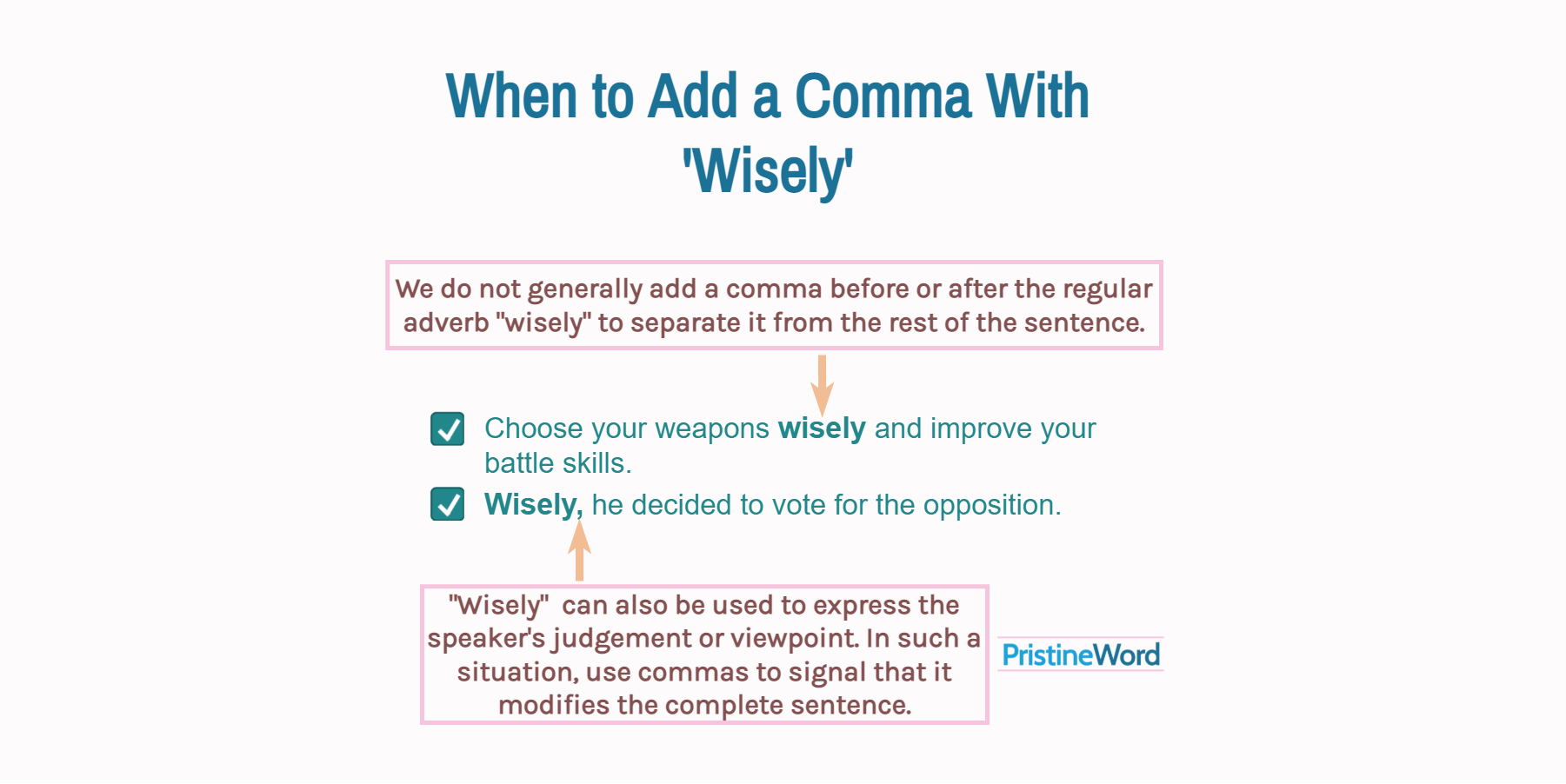We do not generally add a comma before or after the regular adverb "wisely" to separate it from the rest of the sentence.
We do not generally add a comma before or after the regular adverb "wisely" to separate it from the rest of the sentence.
His power is wisely used.
His power is wisely, used.
"Wisely" can also be used to express the speaker's judgement or viewpoint. In such a situation, use commas with the sentence adverb "wisely" to signal that it describes the whole sentence or clause—and not just a single word.
Wisely, David decided to believe in himself and start his own business.
1. 'Wisely' as a Regular Adverb
"Wisely" frequently serves as a regular adverb, modifying a single word. In this case, we do not normally use a comma to separate it from the verb, adjective, or adverb it describes.
Ashley raised her children to always act wisely.
In the example above, "wisely" is used to modify a single word (the verb "use"), so no comma.
Two more examples:
Choose your weapons wisely and strengthen your battle skills.
Use energy wisely at home by replacing inefficient water heaters with new high-efficiency models.
There are exceptions to this convention of not using commas with regular adverbs; for example, place "wisely" between commas in mid-sentence when using it as an aside.
Provide guidance, wisely, and explore possibilities for a better world.
2. 'Wisely' as a Sentence Adverb
"Wisely" can also be used, as a sentence adverb, to modify an entire sentence or clause. Sentence adverbs are different from regular adverbs; they are typically used to reflect the opinion, point of view, or judgement of the speaker.
Wisely, he decided to vote for the opposition.
Sentence adverbs should be surrounded by commas in mid-position.
He declined, wisely, to join my enemies.
At the end of a sentence, they should be preceded by a comma and followed by a period.
He declined to join my enemies, wisely.

